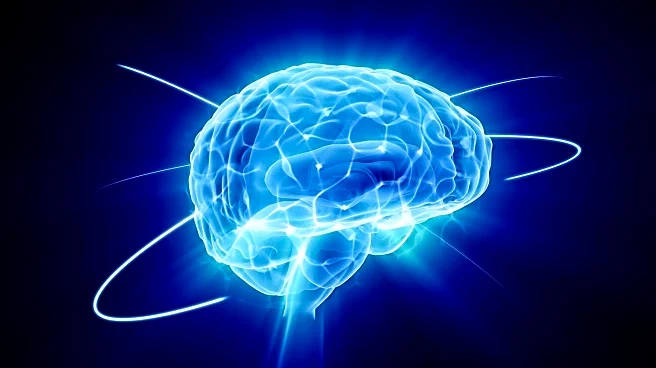What's Happening?
Researchers at Shibaura Institute of Technology have developed new vitamin K analogues that show promise in promoting neuronal differentiation, potentially aiding in the treatment of neurodegenerative diseases such as Alzheimer's and Parkinson's. The study, published in ACS Chemical Neuroscience, highlights the enhanced potency of these analogues compared to natural vitamin K forms. The research team synthesized hybrid vitamin K compounds by linking them with retinoic acid, which is known to encourage neuronal differentiation. These compounds demonstrated a threefold increase in inducing neural progenitor cells to differentiate into neurons, suggesting their potential as regenerative agents.
Why It's Important?
Neurodegenerative diseases are characterized by the progressive loss of neurons, leading to severe cognitive and motor impairments. Current treatments only alleviate symptoms without addressing the underlying neuronal loss. The development of vitamin K analogues that can stimulate neuronal differentiation offers a novel therapeutic approach that could slow or reverse disease progression. This advancement could significantly improve the quality of life for patients and reduce the societal burden associated with long-term care and healthcare costs.
What's Next?
The research team plans to conduct further studies to understand the mechanisms by which these vitamin K analogues exert their neuroprotective effects. Clinical trials may be necessary to evaluate their safety and efficacy in humans. The potential for these compounds to cross the blood-brain barrier and achieve therapeutic concentrations in the brain will be a key focus of future research.
Beyond the Headlines
The study opens new avenues for exploring the role of vitamins and their analogues in brain health and regeneration. It also highlights the importance of interdisciplinary research, combining insights from pharmacology, neuroscience, and molecular biology to develop innovative treatments for complex diseases.









